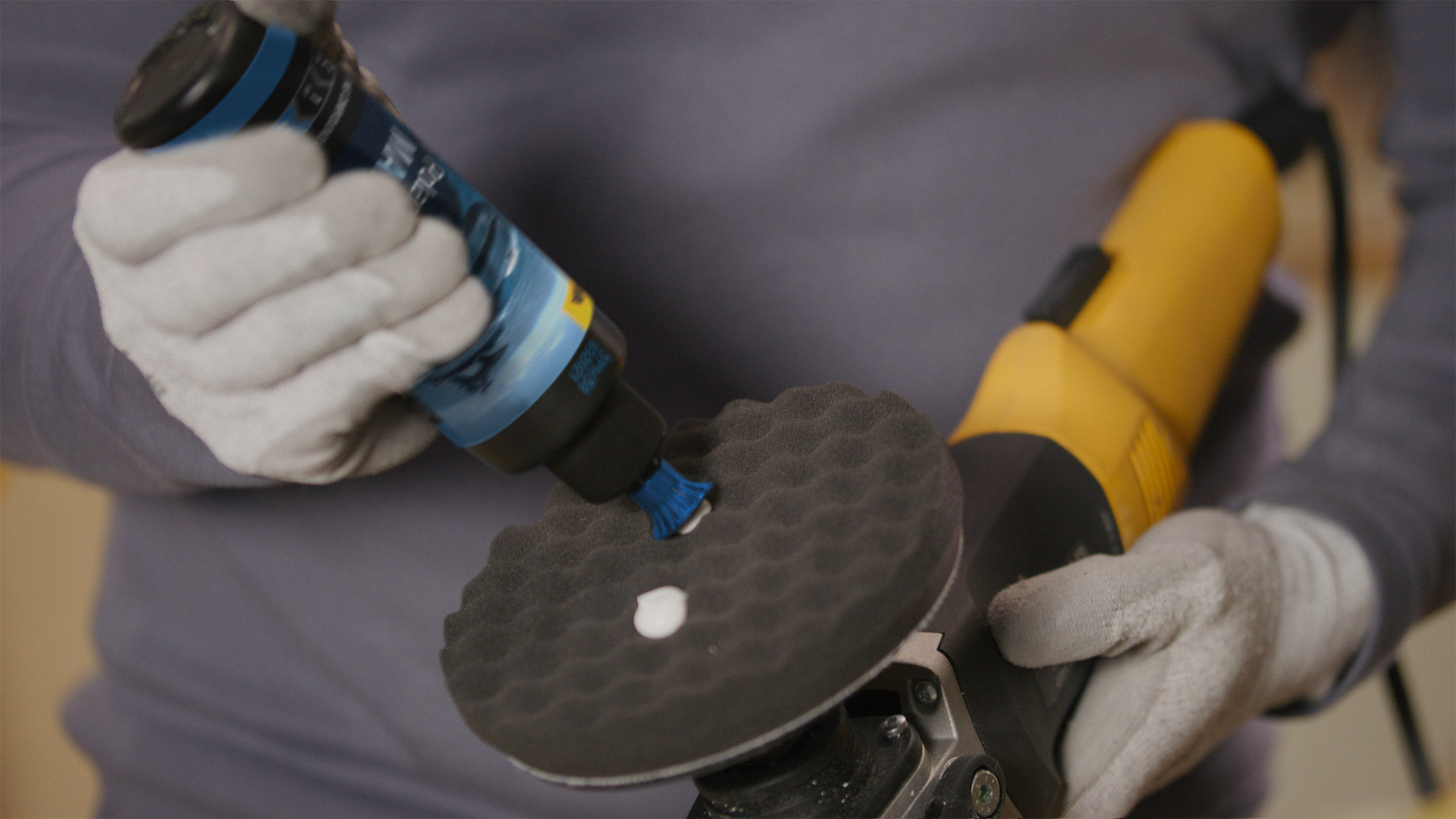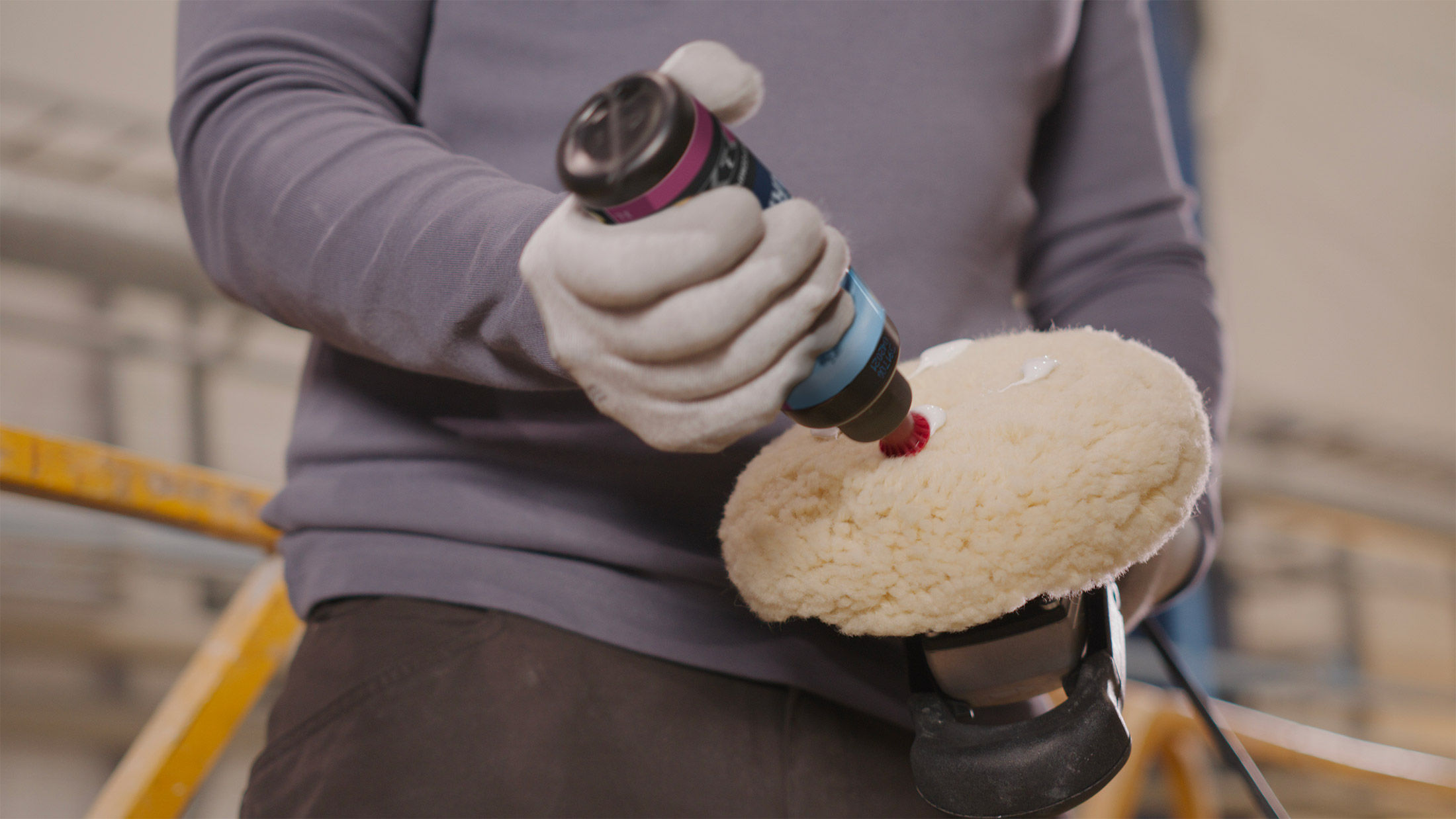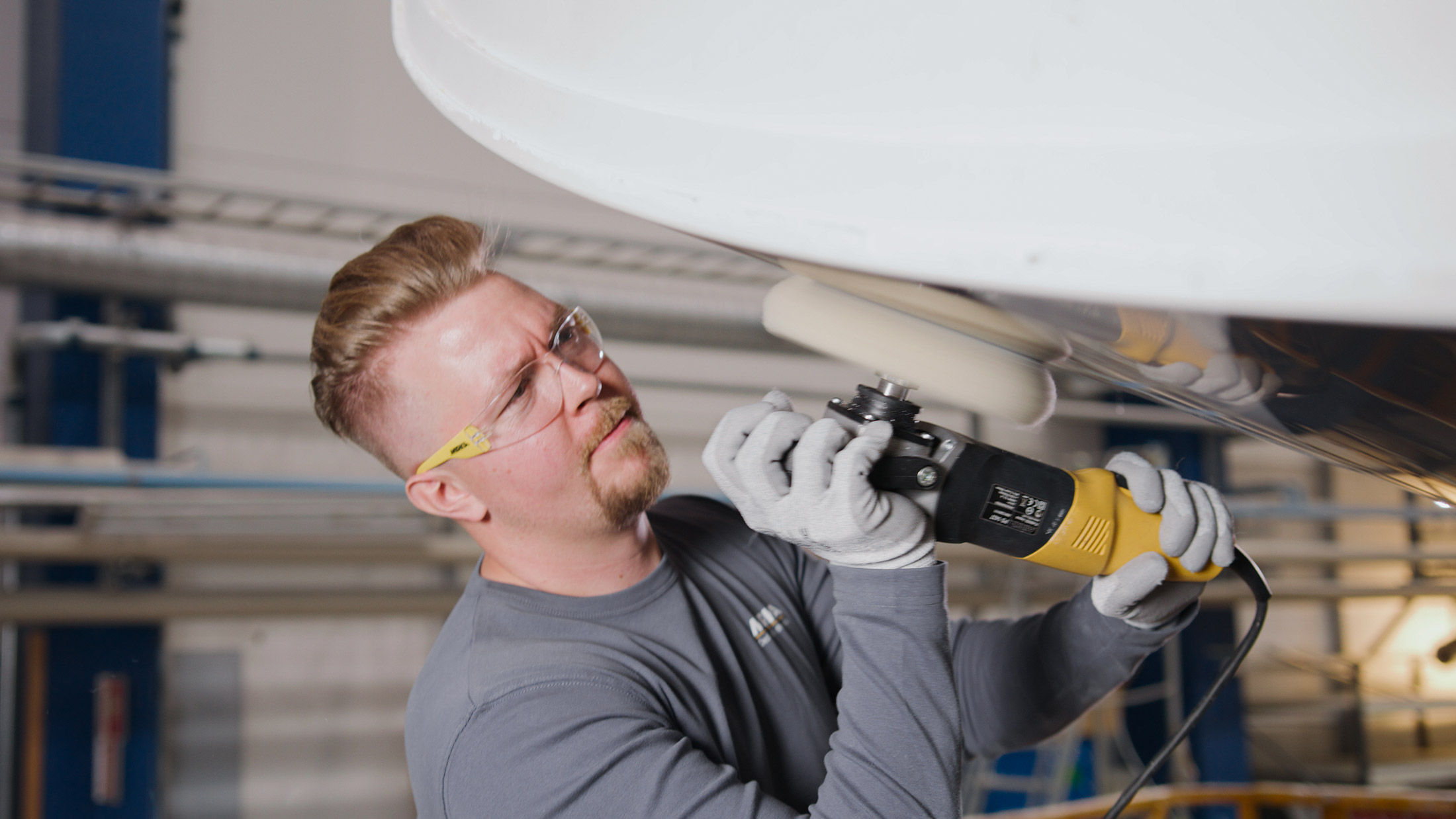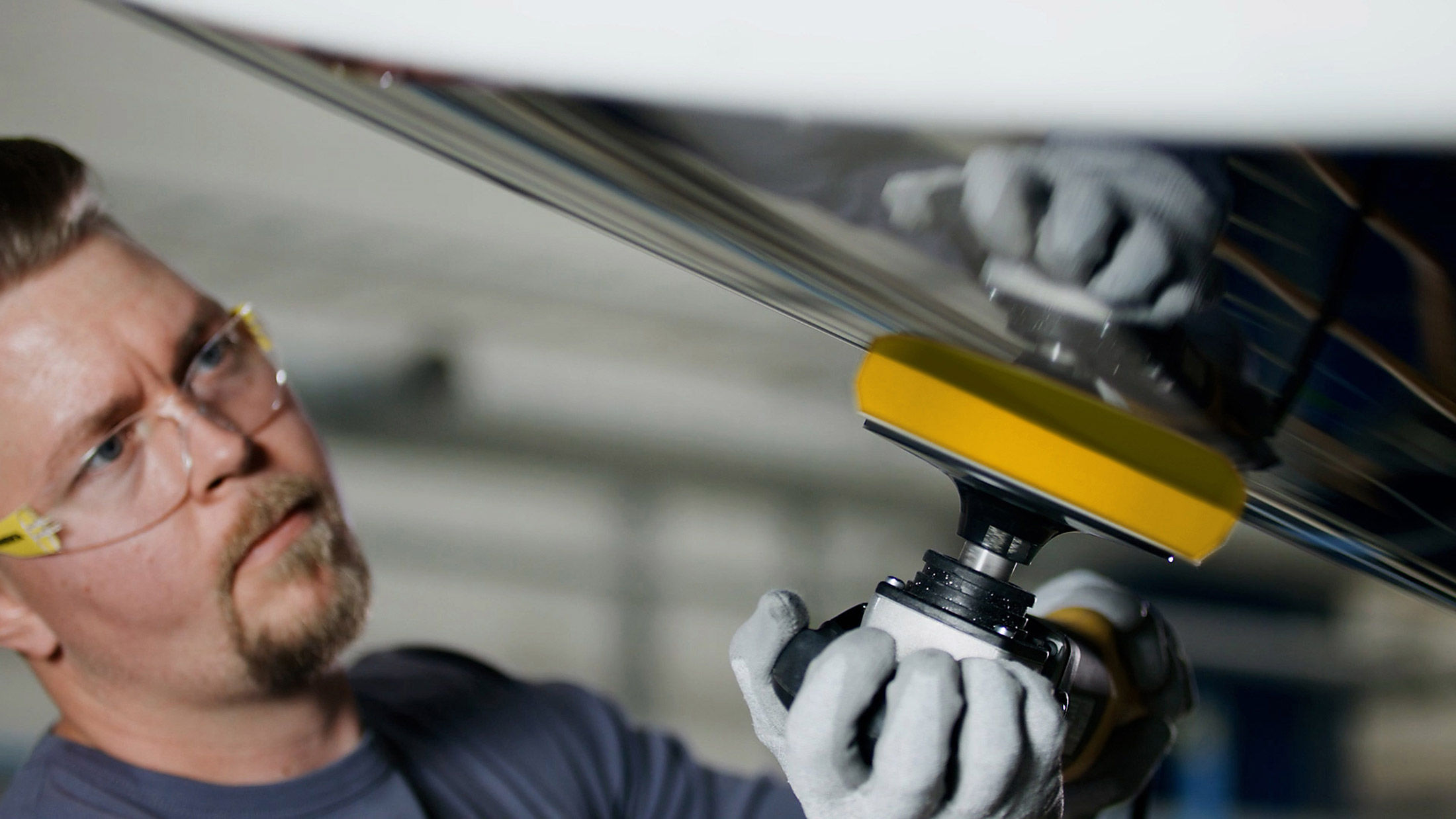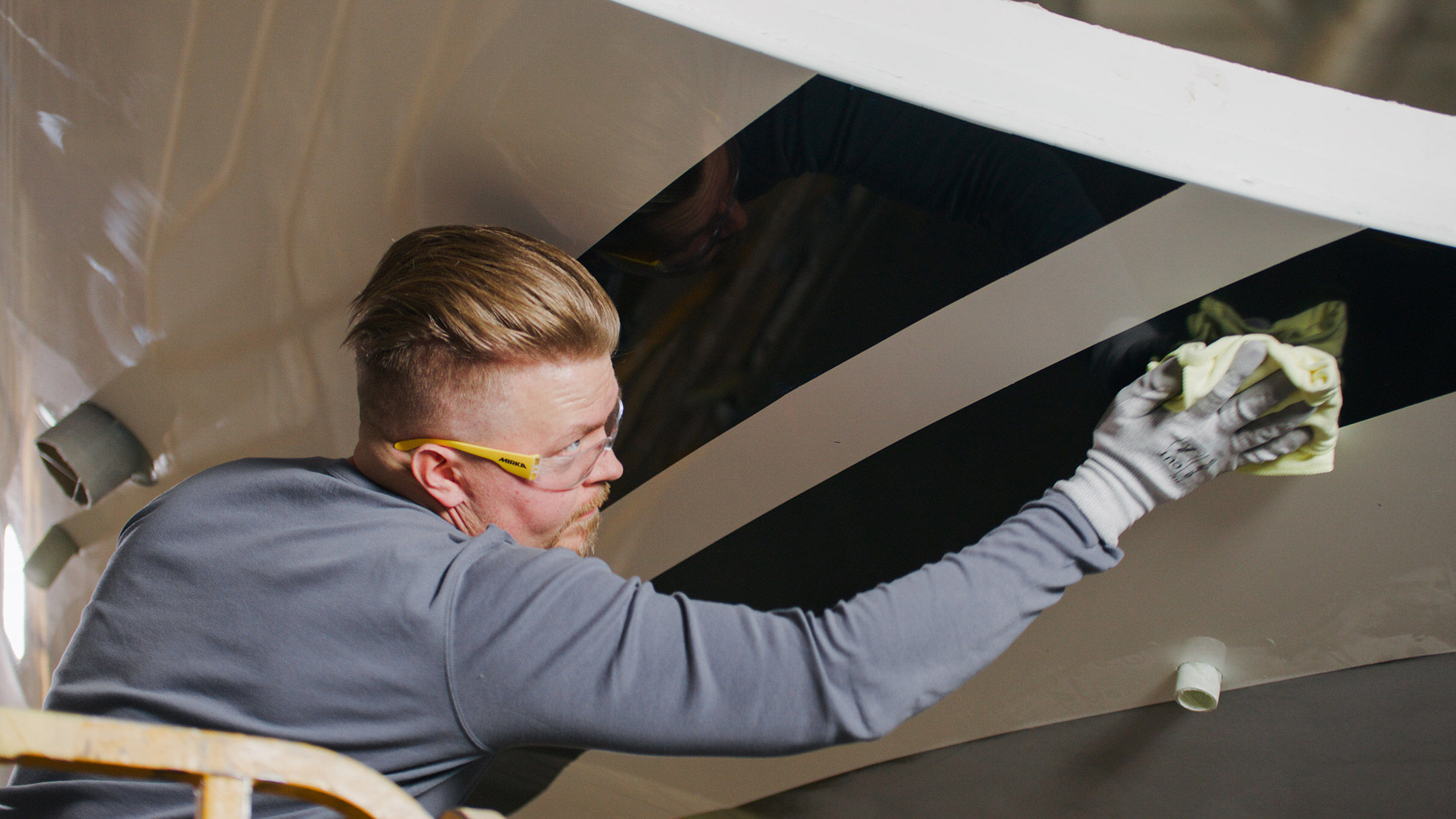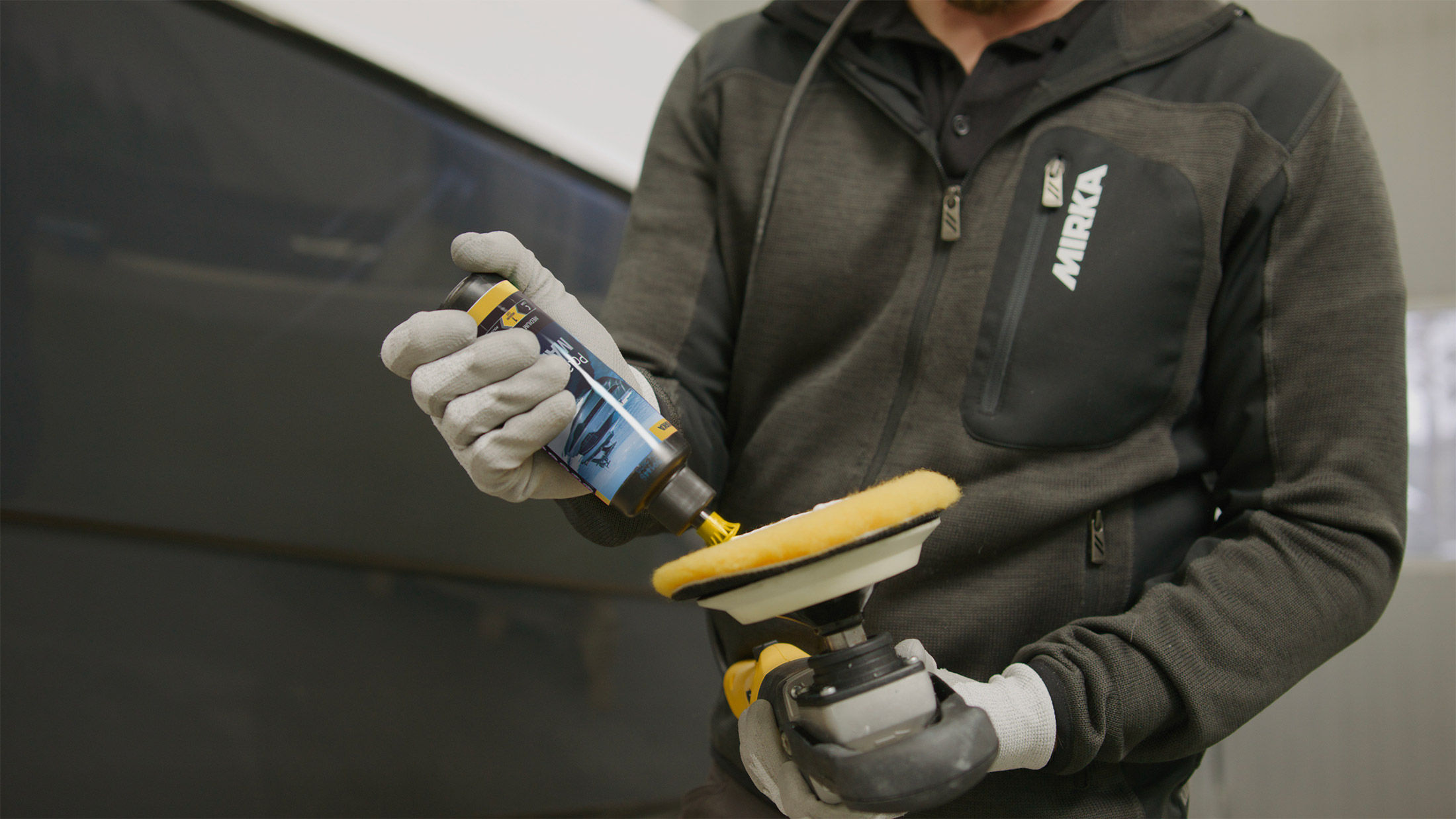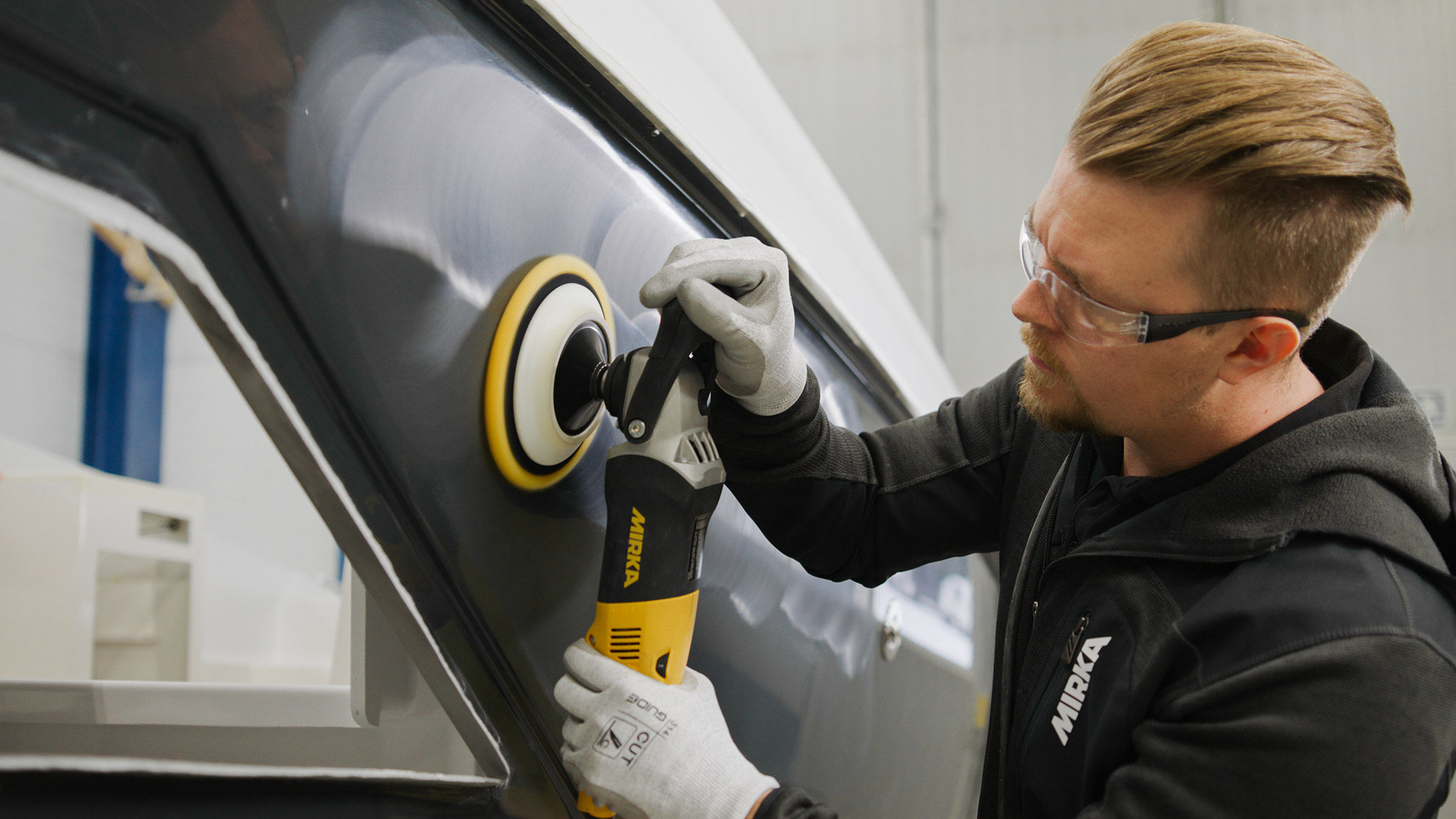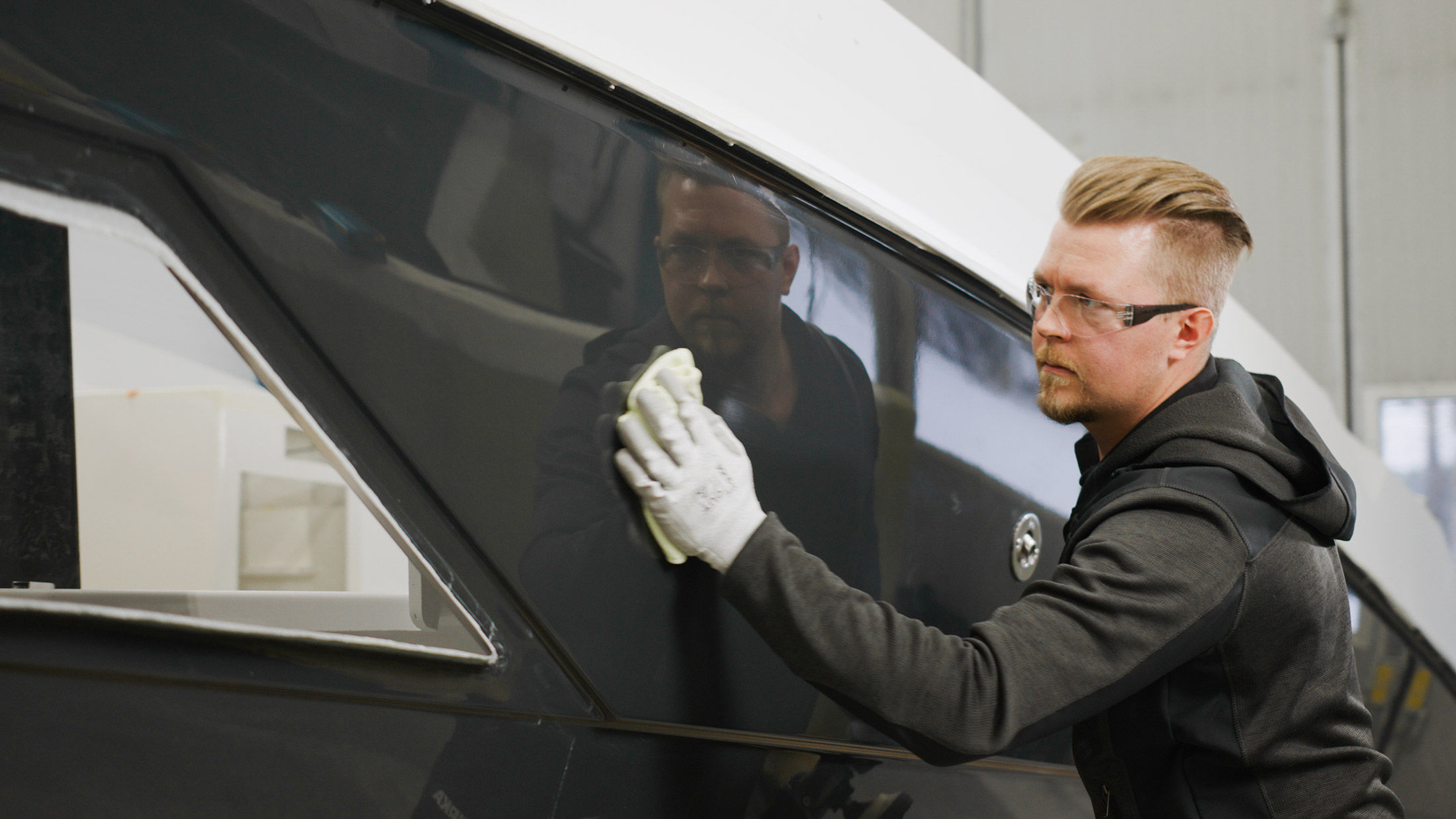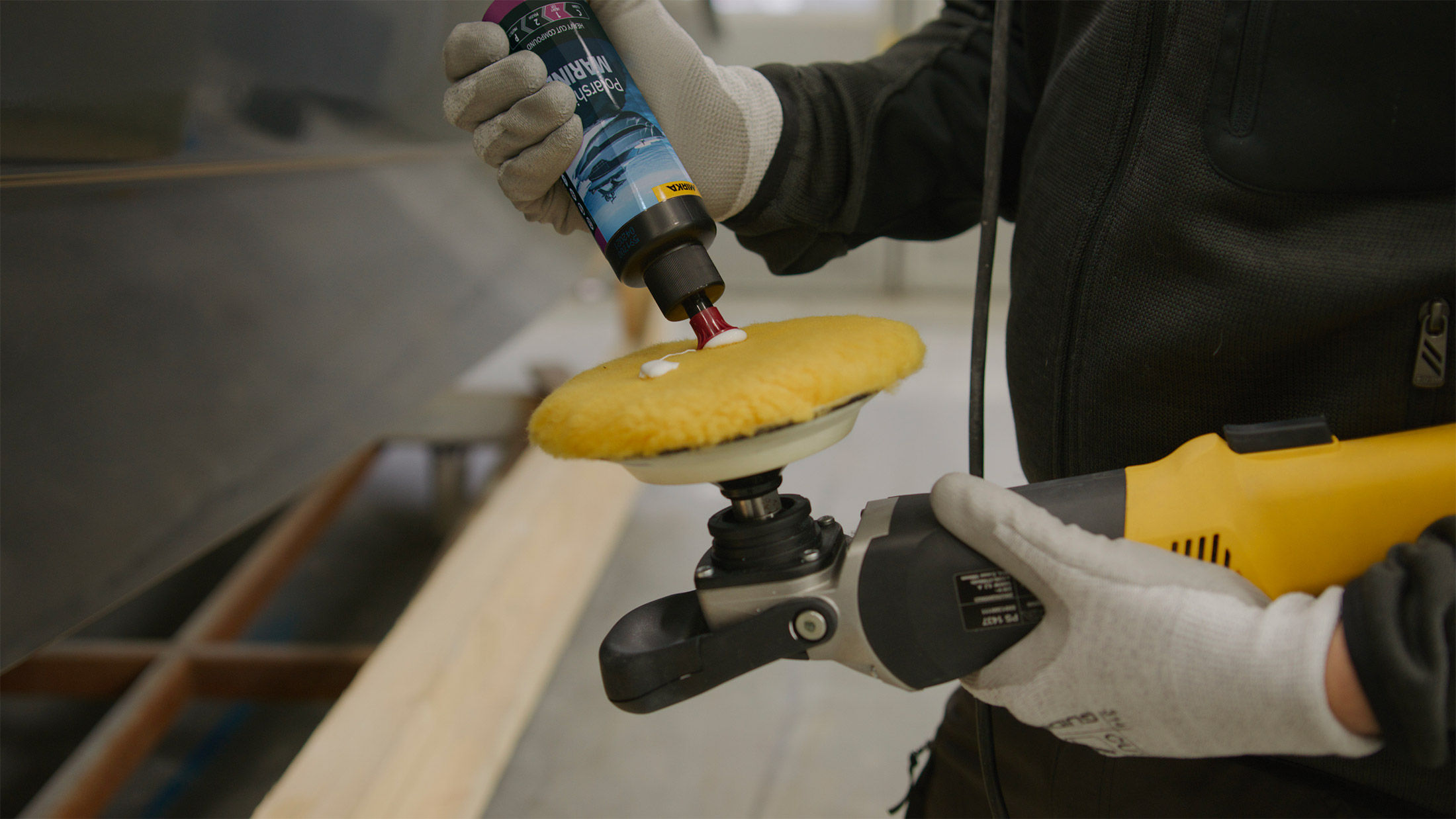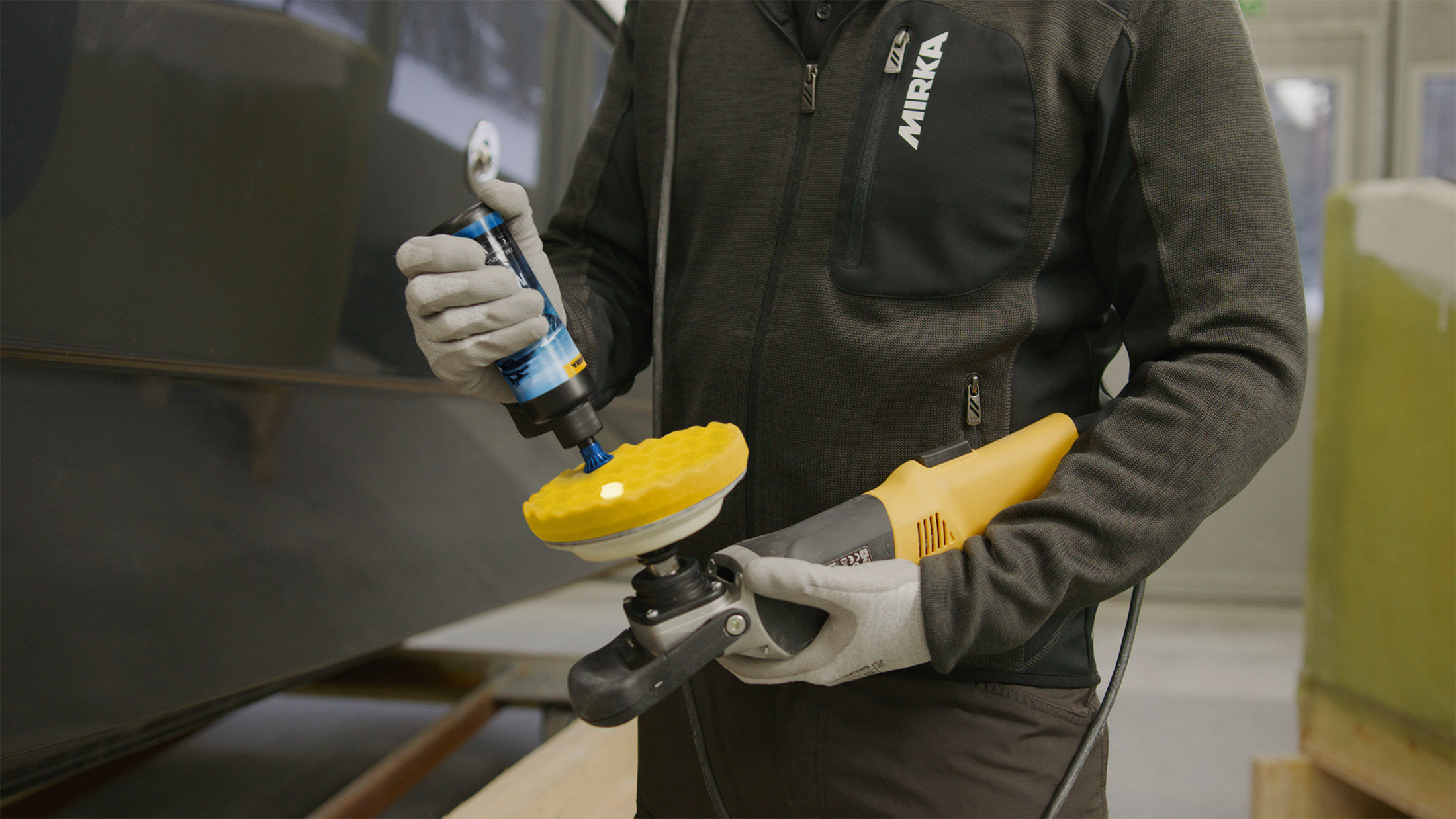2+1 years
Register Your Tool
All Mirka power tools have a standard two-year warranty. Get an additional 1 year of warranty free of charge by registering your tool within 30 days of purchase.
The water borne, silicone free and sustainable Mirka Polarshine® Marine polishing compounds range from Heavy Cut and Medium Cut to Fine Compound, Antihologram Polishing.
As well as renewing the damaged and oxidized surface and removing sanding scratches and impurities, they cut the time required from start to finish. Both Heavy Cut and Medium Cut are suitable for one step processes, delivering a deep gloss when restoring a gel coat or top coat surface.
You do not need to invest in a complicated system with many different polishing compounds: choose the correct Mirka Polarshine Marine solution depending on your marine surface and restore your boat or yacht even with just one step.
Simple steps from start to finish
Restoring a surface with Mirka Polarshine® Marine could not be easier: it is all about speed and gloss. Simply apply the correct compound on a twisted wool, lambswool or waffle polishing pad and buff the surface with a rotary polisher for effective and efficient results.
For restoring hard surfaces and coatings such as gel coat, choose Polarshine Marine Heavy Cut Compound, for topcoat and clearcoat, choose Medium Cut Compound.
For an additional finishing step on these surfaces, Polarshine Marine Fine Compound, Antihologram gives you an even longer lasting gloss while removing holograms and swirl marks on gel coat, topcoat and clearcoat.
Step 1
Fit a twisted wool pad on a rotary polisher and apply Mirka Polarshine® Marine Heavy Cut Compound. Apply cautiously to avoid splashing the polishing compound.
Step 2
Start polishing the scratches or sanding scratches from the surface with controlled movements.
Step 3
To achieve an even longer lasting gloss on light surfaces, apply Polarshine® Marine Fine Compound, Antihologram on a yellow waffle polishing pad and polish the surface.
Step 4
Wipe off the excess polishing compound with a microfibre cloth. Repeat steps if necessary.
Step 1
Fit a lambswool pad or a yellow waffle polishing pad on a rotary polisher. Apply Polarshine® Marine Medium Cut Compound and polish the surface with controlled movements.
Step 2
As an additional step to remove swirl marks or holograms, apply Polarshine® Marine Fine Compound, Antihologram on a yellow waffle polishing pad and polish the surface a second time.
Step 3
Wipe the surface with a microfibre cloth. Repeat steps if necessary.
Follow these steps
Follow these steps
Get to know the Polarshine Marine range
Water borne, silicone free, heavy cut polishing compound for permanent removal of severe oxidation, deep scratches and sanding scratches from grit 800 and finer on gelcoat surfaces.
Suitable for marine manufacturing and restoration processes, produces a deep, high gloss finish in a short time and can be used as a one-step solution on light coloured surfaces. To be used on a twisted wool pad on a rotary polisher for best results. Clean the surface with a microfiber cloth and repeat the process if necessary.
Water borne, silicone free, medium cut polishing compound for quick removal of oxidation and sanding scratches from grit 1000 and finer on topcoat and clearcoat surfaces.
Suitable for marine manufacturing and restoration processes, produces a deep, high gloss finish in a short time and can be used as a one-step solution on light coloured surfaces. To be used on a twisted wool pad on a rotary polisher for best results. Clean the surface with a microfiber cloth and repeat the process if necessary.
Water borne, silicone free polishing compound for polishing marine gelcoat, topcoat and clear coat surfaces. Suitable for marine manufacturing and restoration processes, produces a deep and long lasting gloss in a short time and removes swirl marks and holograms left from previous sanding steps.
Functions as a second step in a process where oxidation, scratches or sanding scratches are removed. To be used on a waffle polishing pad on a rotary polisher for best results. Clean the surface with a microfiber cloth and repeat the process if necessary.
